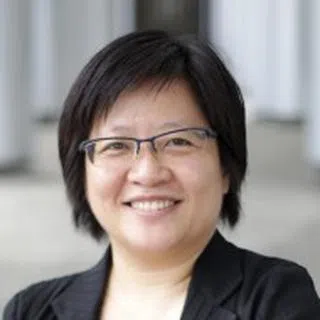Why Chinese Defence Minister Dong Jun won’t attend the Shangri-La Dialogue
On 29 May, a day before the Shangri-La Dialogue begins in Singapore, it was announced that Chinese Defence Minister Dong Jun would not be attending. The decision appears to reflect Beijing’s reluctance to engage with US Defence Secretary Pete Hegseth, rather than any strain in China-Singapore relations. Lianhe Zaobao associate editor Han Yong Hong offers her take on the situation.
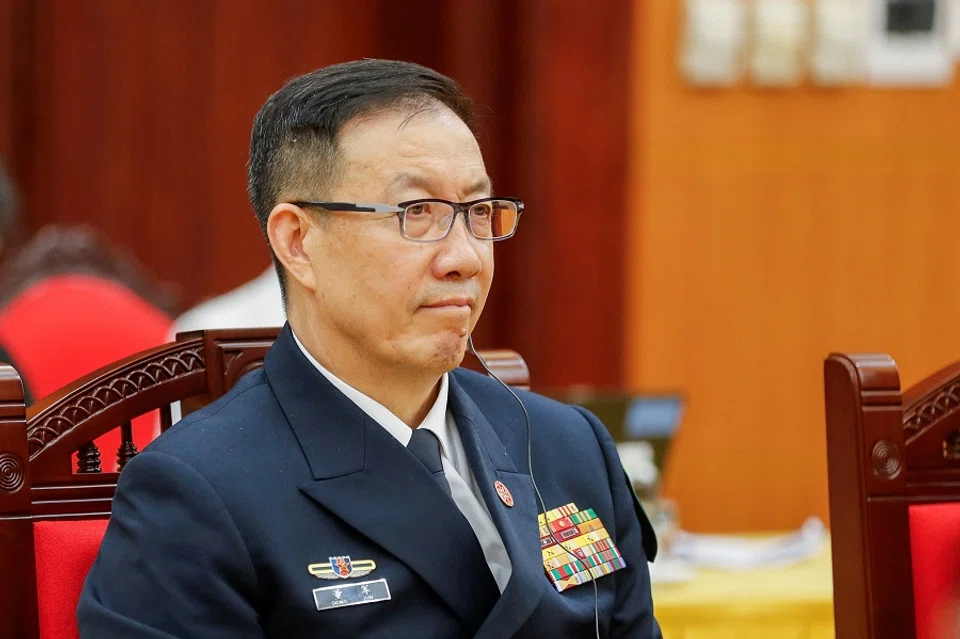
With the Shangri-La Dialogue (SLD) slated to open on 30 May in Singapore, China has yet to announce who will lead its delegation. The event’s organiser, the London-based International Institute for Strategic Studies (IISS), has not provided any updates. Last week, the Financial Times cited informed sources which suggested that Chinese Defence Minister Dong Jun would not be attending this year, and this seems to be true. [NB: China’s Ministry of Defence announced on 29 May that it will send a People’s Liberation Army National Defense University delegation.]
Held in Singapore at the Shangri-La Hotel and attended by representatives from over 40 countries, the SLD is the largest and most prestigious multilateral defence and security dialogue in the Asia-Pacific region, with the US defence secretary attending each year. Since 2019, except for 2020 and 2021 when the event was cancelled due to the pandemic, China’s past three defence ministers, Wei Fenghe, Li Shangfu and Dong Jun, have all attended and spoken at the event. The war of words between the US and Chinese defence ministers has also become a regular “Shangri-La feature”.
Level of representation not always the same
However, attendance by the Chinese defence minister is not always a given. China began to take the dialogue seriously in 2007, sending deputy chiefs of the General Staff of the People’s Liberation Army, Zhang Qinsheng and Ma Xiaotian, from 2007 to 2010. In 2011, amidst warming China-US relations following the visit of then Chinese President Hu Jintao to the US, China sent its Defence Minister Liang Guanglie for the first time. However, the following year the level of representation was downgraded to Ren Haiquan, then vice-president of the Academy of Military Sciences. From 2013 to 2018, the heads of the Chinese delegation were, in chronological order, deputy chief of General Staff Qi Jianguo (2013), deputy chief of General Staff Wang Guanzhong (2014), deputy chief Sun Jianguo (2015, 2016) and vice-president of the Academy of Military Sciences He Lei (2017, 2018).
As seen above, the level of the assigned Chinese delegation is directly linked to the international circumstances and the atmosphere towards China at that particular time. In 2017, the first dialogue after the South China Sea arbitration ruling, China only sent a vice-president of the Academy of Military Sciences — likely to avoid making the South China Sea sovereignty disputes a focal point and in hopes that China would not be made a target.
... when international tensions are high, it is expected that China would prefer not to send a defence minister-level representative, nor would they have their representative speak at the plenary session.
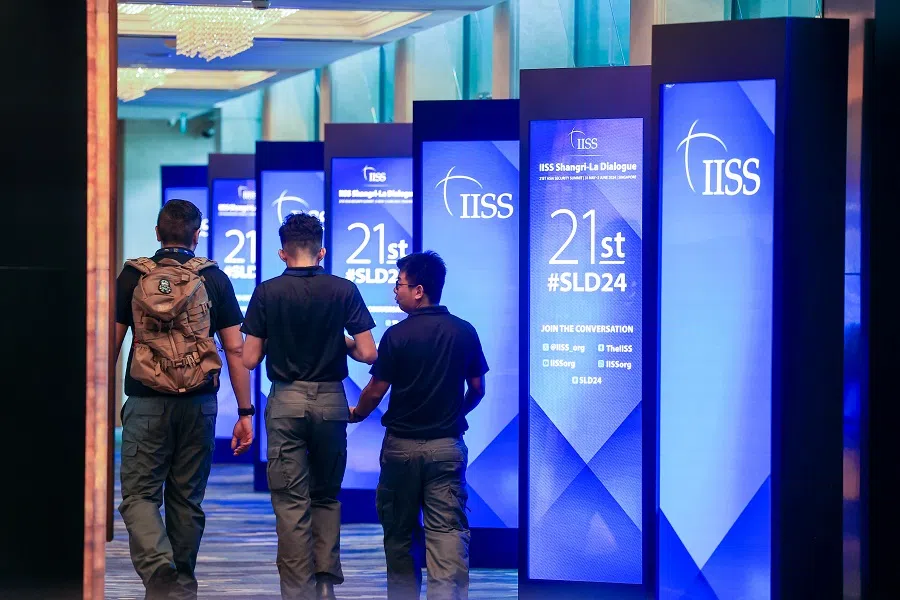
From the organiser’s perspective, the SLD was even more necessary when there are differences to be openly addressed. China, however, views the dialogue as a Western-dominated platform, with the organisers intentionally framing the event in such a way as to delineate China-US confrontation.
Some Chinese officials and commentators have even mocked the dialogue as a “verbal battleground” or a “colosseum”, and have more than once publicly expressed their dissatisfaction. Therefore, when international tensions are high, it is expected that China would prefer not to send a defence minister-level representative, nor would they have their representative speak at the plenary session.
As for why China seems disinterested in the SLD this year, it likely boils down to a lack of enthusiasm for US Defence Secretary Pete Hegseth.
This year, with Donald Trump’s return to the White House, there have long been signs which indicated that China would likely not send Dong to the SLD — but not because of rumours that Dong himself was “in hot soup”.
Dong visited Berlin for three days in mid-May and spoke at the sixth UN Peacekeeping Ministerial, and also held talks with his German counterpart. On 23 May, Dong also had a high-profile meeting with the visiting Chief of Defence Forces of the Royal Thai Armed Forces, General Songwit Noonpackdee. These are all signs from China that even if Dong does not attend the dialogue, he is still performing his duties as per normal.
The Hegseth factor
As for why China seems disinterested in the SLD this year, it likely boils down to a lack of enthusiasm for US Defence Secretary Pete Hegseth. On the one hand, China is not inclined to schedule a meeting between the two defence chiefs. On the other hand, Beijing does not want to appear overly friendly with the US, nor does it want a meeting that could devolve into public disagreement. Therefore, they simply chose to maintain a distance and avoid contact altogether.
After taking office, Hegseth, a China hawk in the Trump administration, visited US allies in the Asia-Pacific — the Philippines and Japan — to bolster alliances aimed at deterring China. Chinese observers, however, noted that Hegseth only narrowly secured enough votes to become defence secretary in the Senate earlier this year and has been plagued by missteps since.
He was a member of the Signal group chat involved in the administration’s “leakgate” scandal in March. The New York Times further revealed his participation in another Signal group chat, which included his family members, where he shared sensitive information about US military strikes against the Houthis.
As a result, Hegseth’s competence has been repeatedly challenged by Democrats, and his inner circle is reportedly fractured. Even the White House is said to be alarmed by the numerous negative reports coming from the Pentagon.
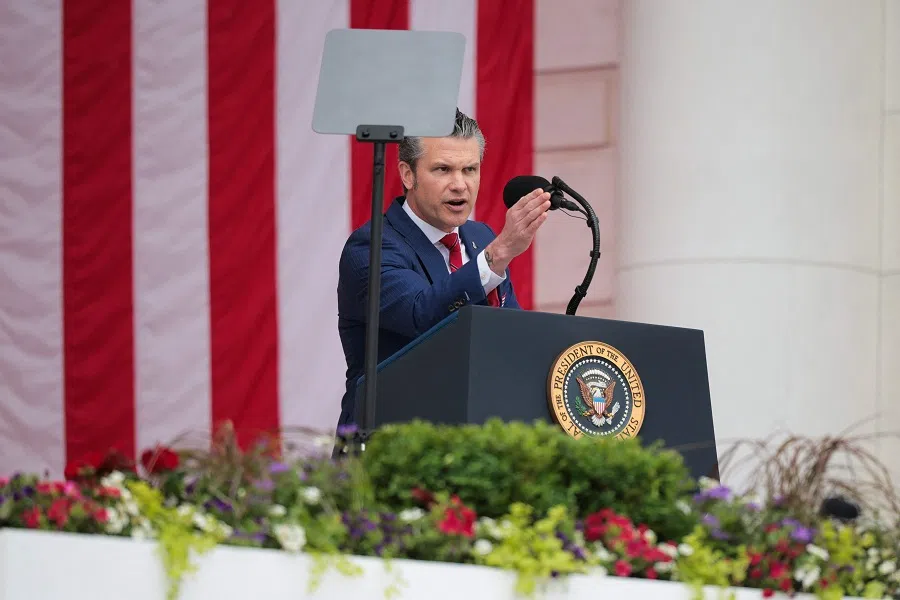
While the overall atmosphere in China-US relations has noticeably eased since the Geneva talks on 10 May, China remains convinced that the US will not abandon its efforts to suppress China and is prepared to engage in a protracted struggle — what the Chinese side calls “fighting to the end”.
Wu Xinbo, director of the Center for American Studies at Fudan University, analysed this week at a seminar that the Geneva talks marked the end of the first phase of this contest, but the second phase is now underway, with both sides vying for the support of third parties, such as Latin America, ASEAN, and the Middle East.
... European defence issues, the Russia-Ukraine war, and the responsibility-sharing between the US and Europe are likely to be key topics. China, for its part, is content not to be involved in this discussion.
China not focusing only on US
In other words, the China-US rivalry shows no sign of abating. At this stage, China is not rushing into trade or security dialogues, nor confrontations, with the US. Instead, it is focusing its energy on securing support from countries outside the US, cultivating new markets, and building supply chains.
Chinese Premier Li Qiang’s attendance this week at the inaugural ASEAN-China-GCC Summit in Malaysia exemplifies this effort. Other trade nations around the world are also likely willing to form various new, loosely structured partnerships to enhance cooperation with China.
French President Emmanuel Macron is set to deliver a speech at the SLD opening ceremony on 30 May — the first time a leader of a major European power has addressed the opening session. European defence issues, the Russia-Ukraine war, and the responsibility-sharing between the US and Europe are likely to be key topics. China, for its part, is content not to be involved in this discussion.
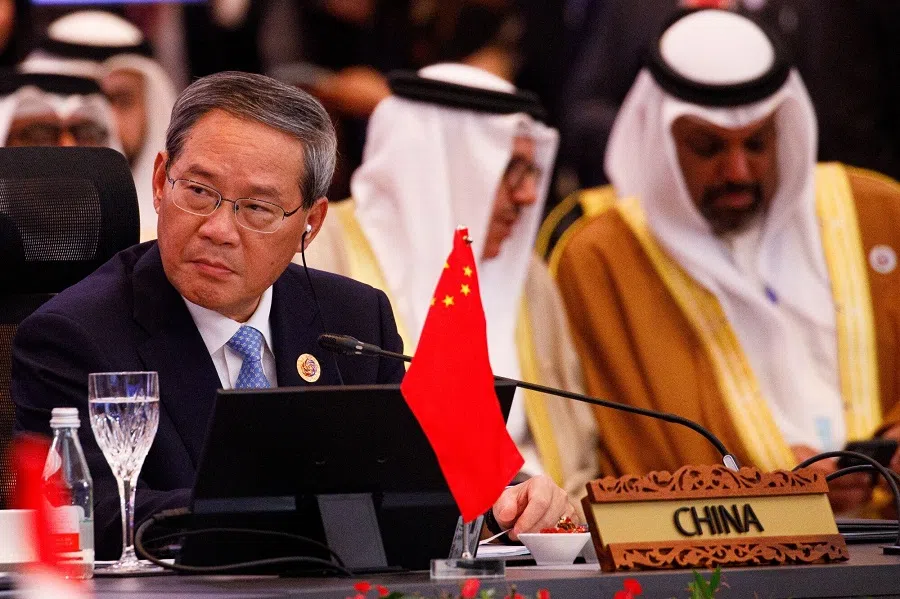
While other Asia-Pacific countries could be disappointed by the potential absence of the Chinese defence minister at the SLD, China has other considerations, given the presence of high-ranking US officials at the Dialogue. In the grand scheme of China’s resolve to “fight to the end” against US suppression, Dong skipping a meeting with Hegseth is but a minor incident.
This article was first published in Lianhe Zaobao as “中国防长董军不赴香会”.
